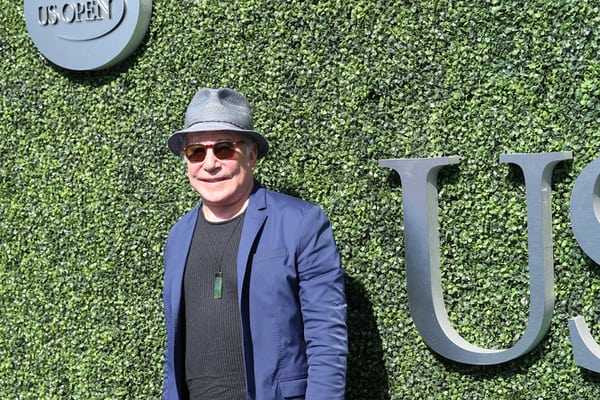The Smithsonian’s National Museum of American History will present its Great Americans medal to composer, musician and philanthropist Paul Simon Sept. 18. The presentation of the medal is part of the “Great Americans Award Program,” the museum’s emergent and signature honor. Simon will be the sixth honoree and the first musician to receive the award.
The “Great Americans Award Program,” supported by David M. Rubenstein, chair of the Smithsonian’s Board of Regents, features a conversation between Rubenstein and the recipient followed by a presentation of the Great Americans Medal for lifetime contributions embodying American ideas and ideals. Since its inception in 2016, the “Great Americans Award Program” has honored those who have not only made a lasting impact in their fields but those whose philanthropic and humanitarian endeavors set them apart.
“Paul Simon has achieved something truly remarkable,” said Anthea M. Hartig, the Elizabeth MacMillan Director of the National Museum of American History. “Through the timelessness and poignancy of his music and his parallel dedication to understanding the beliefs and values of all peoples, Paul Simon has bridged cultures and generations in a way that beautifully exemplifies what it means to be a Great American.”
An accomplished musician and songwriter, Simon has produced such masterpieces as “Bridge Over Troubled Water,” “Sounds of Silence” and “Graceland” over his six-decade career. He has received 16 Grammy Awards, including a Lifetime Achievement Award for his work as half of the duo Simon and Garfunkel. Simon was inducted into the Rock & Roll Hall of Fame as a duo in 1990 and as a solo artist in 2001, and inducted to the Songwriters Hall of Fame in 1982. “Mrs. Robinson,” his song from the film The Graduate, was named to the top 10 of the American Film Institute’s “100 Years, 100 Songs.”
Simon’s musical honors include the Library of Congress’ inaugural Gershwin Prize for Popular Song, which recognizes the profound and positive effect of popular music on the world’s culture. In 2006, Time magazine called him one of the “100 People Who Shape Our World.” Simon is also a recipient of the Kennedy Center Honors and a member of the American Academy of Arts and Sciences.
“For more than half a century, Paul Simon has been one of the music world’s most talented songwriters, recording artists and live performers,” Rubenstein said. “He has also been one of the music world’s most committed philanthropists. The National Museum of American History is thus honored to present Paul Simon with its Great Americans Award.”
In June 2017, Simon donated the net proceeds from his U.S. concert tour to the Half-Earth Project, an initiative of the E.O. Wilson Biodiversity Foundation, which is committed to stopping the species extinction crisis. During Simon’s “Homeward Bound—The Farewell Tour” in 2018, he thanked each tour city he visited with a financial gift to benefit local youth and environmental organizations. He continues his commitment to perform for charity, donating to organizations dedicated to environmental welfare and species biodiversity.
Simon’s varied philanthropic work includes co-founding the Children’s Health Fund (CHF), which donates and staffs mobile medical units that bring health care to low-income children and their families around the United States. Since its inception in 1987, CHF has provided over 5 million doctor/patient visits and created a primary health care source for communities affected by Hurricanes Andrew and Katrina.
—
Photo Credit: Leonard Zhukovsky / Shutterstock.com
